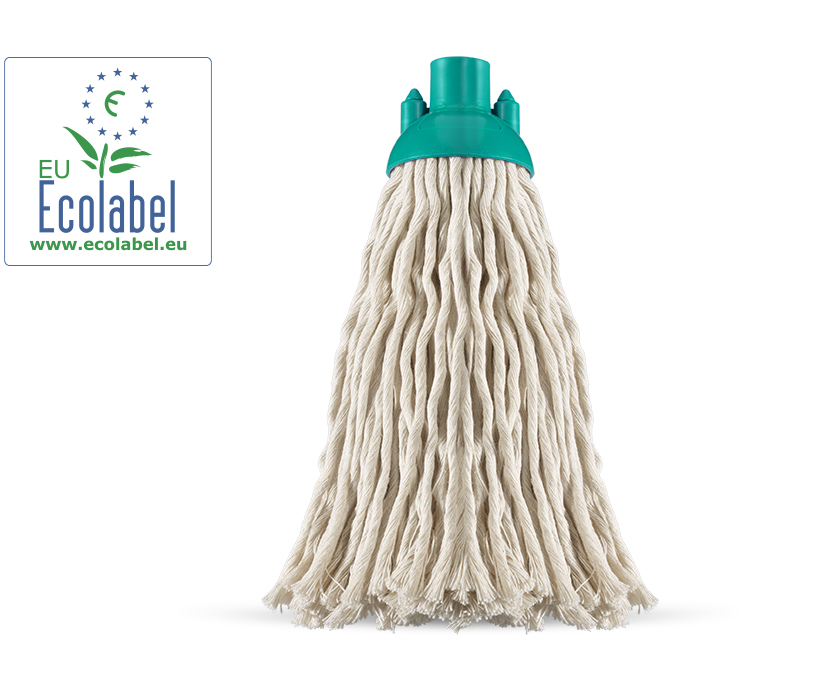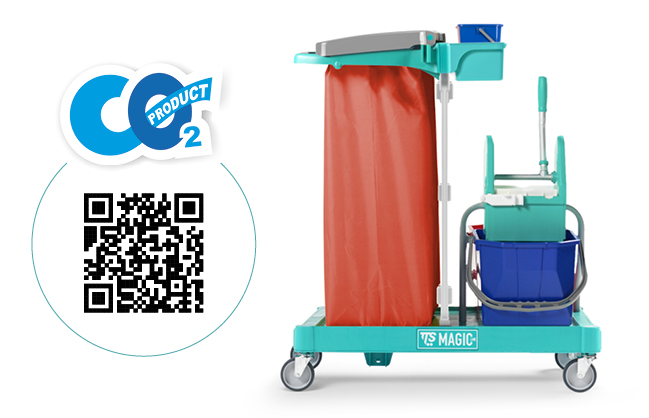Follow the Green path
Climate neutral by 2050: this is the ambitious goal, that Europe has set itself to tackle the climate change we are witnessing, which is now an urgent threat to the whole of humanity.
Climate neutral by 2050: this is the ambitious goal, that Europe has set itself to tackle the climate change we are witnessing, which is now an urgent threat to the whole of humanity.
In the current scenario, the green approach cannot simply be a fad but rather must become a systematic orientation towards sustainability in every area and sector accompanied by verification systems that ensure the effective implementation of sustainable practices.
There are already some steps in this direction: ECOLABEL-certified indoor cleaning services must report annually on their purchases of green products.
Some companies have also started to carry out their checks to ensure that what was stated in the call for tenders is then effectively complied with. One example is Trenitalia: the main Italian railway company periodically asks its suppliers for proof of green purchases made to guarantee the effective sustainability of what they provide.
The importance of certifications
Saying they are sustainable is not enough: independent third parties must verify and certify sustainability to attest it is true. In a market flooded with brands invented ad hoc by manufacturers to create confusion, certifications are the only real guarantee in the hands of the consumer.
Nowadays everybody talks about cleaning trolleys made of recycled plastic with percentages close to 100%. How much transparency is there about the origin of these plastics and how these percentages are calculated?
The Institute for the Promotion of Plastics for Recycling (IPPR) has created the European Second Life Plastic (PSV) label which provides a clear scheme that identifies which polymers can actually be defined as recycled, discarding for example waste from own production, and clarifies how to calculate the percentage of recycled on the finished product, all validated by Accredia. The mark is issued after verification at the production sites and in the light of careful reporting of consumption. In addition, it provides for periodic monitoring at the production sites by the Certification Authority to ensure compliance over time with the requirements for maintaining the mark.
Unlike simple self-declarations, PSV certification is therefore a structured system that protects the consumer on the actual quality and traceability of recycled plastics, which is why TTS, which has been using recycled plastics for decades, joined the certification in 2012 to offer maximum transparency to its customers.
It depends on the certification
In addition to the proliferation of brands invented by producers, we are also witnessing a proliferation of environmental certifications, for which, however, consumers have not adequate information and are at the centre of a real labyrinth.

To find the way, it is very important to understand the original purpose of the certifications: everything was born to guarantee a more conscious consumption. Type I environmental labels have therefore been developed to ensure compliance with well-defined limits: for example, the textile Ecolabel certifies, among other criteria, that the use of heavy metals has been below certain parameters during the production process. Other labels, on the other hand, analyse one or more aspects of impact of a product, translating them into a well-defined number. This type of label is useful and unambiguous for the consumer only when it is based on a public and unified calculation system, such as ISO, to allow a direct comparison between equivalent products and to be sure that there is the same benchmark for each statement. The lack of clearness allows manufacturers to "tailor-made certification" to obtain better results at the expense of the real sustainability of the products. One example is the possibility of carrying out LCA Cradle to Gate or Cradle to Grave studies excluding from the impacts the entire use and disposal phase of the product, information that often ends in a footnote.A step forward has been taken in 2018 with the publication of the UNI EN ISO 14067 standard, which established the calculations and databases underlying LCA studies aimed at calculating the Carbon Footprint (CFP Product Carbon Footprint). Besides, CFP offers a systematic approach: it can apply to an entire product line and allows calculating CO2e emissions in all countries where they are sold.
TTS has chosen to analyse greenhouse gas emissions at every stage of the life cycle of its best-selling products to optimise the production phases and the choice of raw materials used, laying the foundations for the development of new products that optimise future emissions.


For this reason, it has developed a certified software that allows automatic counting of CO2e emissions (CFP Systematic Approach) according to the goods delivery market.
The work carried out has made it possible to achieve an important goal: TTS is one of the first companies in the world to have obtained the certification of the CFP Systematic Approach implemented.
Another certification chosen by TTS is the EU Ecolabel, the European Ecolabel that identifies the products with the lowest environmental impact: the range of TTS products certified Ecolabel EU is constantly growing, confirming the high-performance standards offered and the reduced environmental impact of products throughout their entire life cycle.
The first sustainability lies in the efficiency of the processes
Cleaning operations are processes that have a great impact on the ecosystem. The first action towards sustainability consists in eliminating the waste of resources that in professional cleaning means implementing processes that allow a wise use of chemicals, water and energy.
Efficiency and sustainability are two sides of the same coin: efficient products reduce the use of resources resulting in significant savings over time that fully repay the initial investment, for example, the costs and resources used in floor washing operations can be reduced by up to 70% changing from bucket-cleaning to soaking on-demand system.
TTS has always been committed to creating highly professional solutions that eliminate waste of water, cleaning solution and energy, both electric and human, reducing not only the environmental impact but also the management costs. The range of green products and systems offered includes cleaning solution dosing control systems, a wide range of microfibres produced in Italy with selected top quality fibres and in general professional equipment designed to last.
Conclusion
There is a great need for clear and understandable information to enable conscious consumption that is sustainable not only on paper. Some steps have been taken but we expect many more to protect both honest producers and consumers who want to do something concrete with their purchases towards the ambitious goal that the EU has set for 2050 and leave a cleaner future for generations to come.


